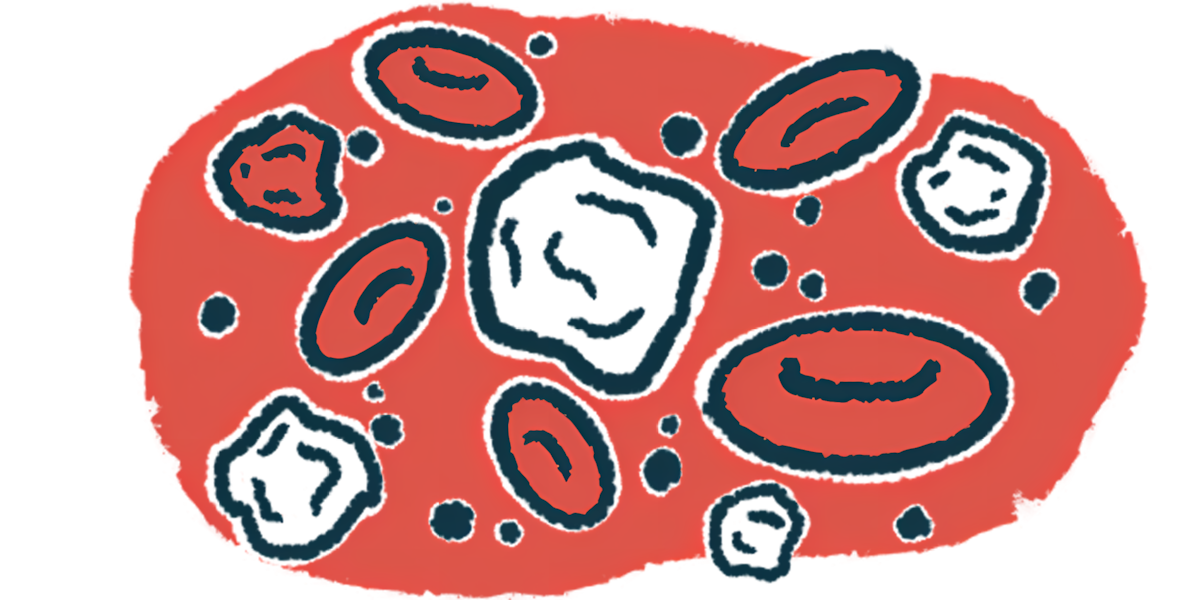Ocrevus rapidly depletes B-cells, then alters T-cells in MS patients
Study: Patients see increase in type of immune cell after about 6 months

The CD20 inhibitor Ocrevus (ocrelizumab) rapidly depletes immune B-cells in people with multiple sclerosis (MS), as expected, but ongoing treatment also leads to changes in immune T-cells, a new study reports.
After about six months of treatment, patients experience T-cell changes such as an increase in regulatory T-cells, a type of immune cell that works to control the activity of other immune cells. These effects were not as evident in early time points.
“Understanding this sequential pattern may be critical to optimizing the timing and duration of anti-CD20 therapy in MS,” scientists wrote.
The study, “First the B cells fall, then the T cells follow: temporal immunological shift with ocrelizumab in multiple sclerosis,” was published in the Journal of Neurology.
Ocrevus targets key protein on B-cells’ surface
In MS, the immune system mistakenly attacks healthy parts of the brain and spinal cord. Several immune cell types drive these inflammatory attacks, but B-cells and T-cells are known to play a key role.
Ocrevus is a therapy that’s approved for adults with relapsing forms of MS, as well as primary progressive MS. Administered via an infusion into the bloodstream, the treatment has been shown to reduce disease activity and slow disability progression effectively.
The active ingredient in Ocrevus is an antibody that targets the CD20 protein on the surface of mature B-cells, leading to their death. Studies suggest that B-cell depletion also appears to exert downstream effects that influence the function of various other immune cells.
To learn more, scientists in Italy investigated Ocrevus’ long-term impact on the immune system of 15 MS patients. The team used publicly available gene expression (activity) data generated from the patient’s immune cells. Samples were collected at three time points: before, at two weeks, and six months after treatment.
Therapy appears to reprogram regulatory T-cells
When the researchers examined the two-week samples, there were significant differences in several B-cell subtypes and a consistent drop in the activity of B-cell-specific genes. At the same time, there was an increase in anti-inflammatory molecules and an increase in the activity of genes needed for immune cells called monocytes to move toward areas of inflammation. This may be a mechanism the immune system adopts to compensate for the loss of B-cells, the team noted.
However, there were no significant changes in the levels of T-cell subsets or other immune cells at this early time point.
After six months of Ocrevus, however, the researchers observed significant changes in several T-cell-related pathways that were not seen at two weeks. Those included a significant decrease in the production of inflammatory molecules and reduced activation of CD4-positive T-cells, a type of immune cell that helps orchestrate immune responses.
Our data indicate that anti‑CD20 treatment leads to swift B-cell depletion, whereas alterations in T cell-related pathways emerge more gradually and become most noticeable by 6 months.
Six months of Ocrevus also appeared to reprogram regulatory T-cells, which became more active and resilient, “thereby sustaining [long-term] immunomodulatory efficacy in MS,” the researchers wrote.
This “may represent a late biological effect contributing to the long-term efficacy of [Ocrevus] in MS,” they suggested.
The suppression of B-cell functions was also maintained at six months and, in several cases, became even more pronounced.
“Our data indicate that anti‑CD20 treatment leads to swift B-cell depletion, whereas alterations in T cell-related pathways emerge more gradually and become most noticeable by 6 months,” the scientists concluded. “Further investigation at intermediate timepoints will be necessary to clarify the true onset of these [gene activity] changes and their value as predictors of long‑term therapeutic outcomes.”








